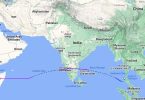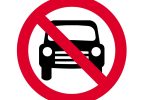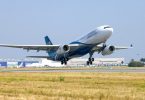Determining whether regional airlines meet the same safety standards as big carriers is “crucial” as investigators probe a Pinnacle Airlines Corp. plane crash that killed 50 people, a U.S. safety board member said.
National Transportation Safety Board member Kitty Higgins asked a pilots-union leader today if there are differences in pay, training, crew scheduling and commuting policies between the two types of carriers. The NTSB completed three days of hearings in Washington on the accident.
The board is examining hiring and training at Pinnacle’s Colgan unit and the possibility of pilot error and fatigue in the February crash near Buffalo, New York. The regional carrier was flying for Continental Airlines Inc.
“This is the central issue in this accident,” Higgins said. “Do we have one level of safety?”
Rory Kay, air safety chairman for the Air Line Pilots Association, responded, “No.”
Senator Byron Dorgan, a North Dakota Democrat and chairman of the Senate’s aviation subcommittee, said he will hold a series of hearings on air safety in response to the “stunning and very alarming information” from the NTSB sessions.
The Bombardier Inc. Dash 8 Q400 plane crashed Feb. 12 in Clarence Center, New York. The dead included one person on the ground and all 49 people on board the plane. The NTSB won’t issue its conclusions for several months.
The pilot, Marvin Renslow, didn’t disclose that he had failed two flight tests in small planes when he applied to Colgan in 2005, according to Pinnacle. He may have been fatigued the day of the crash, as he logged into a company computer system at 3:10 a.m., according to the NTSB.
Long-Distance Commute
Regional airline pilots are among the lowest paid in the industry, and NTSB member Debbie Hersman asked today whether their salaries may force them to commute long distances to their jobs, increasing the risk they arrive at work tired.
Rebecca Shaw, copilot of the Colgan flight, traveled from Seattle, where she lived with her parents, for duty in Newark, New Jersey, the day of the accident. She flew all night aboard FedEx Corp. planes to arrive just before 6:30 a.m., according to the NTSB. Her text messages and activities during the day indicate she may not have had much time for sleep, NTSB evidence shows.
Shaw, 24, had an annual salary of $23,900, Pinnacle spokesman Joe Williams said in an e-mail yesterday. The average for a captain on the type of aircraft involved in the crash is $67,000, he said.
Coffee Shop Job
Earlier in Shaw’s time at Colgan, she worked “briefly” a few days a week at a coffee shop as a second job when she wasn’t flying, according to the NTSB.
Pilots at regional airlines are paid less than their counterparts at bigger carriers in part because they usually have fewer years of service and fly smaller planes.
A first officer with about five years of experience makes an average of $84,300 a year at a major airline such as Continental or Delta Air Lines Inc., while a first officer at Pinnacle with the same years of service makes $32,100, according to AIR Inc., an Atlanta-based firm that tracks pilot pay.
Hersman said an e-mail she received from a pilot at Delta’s Comair unit complained that 301 cockpit-crew members were being relocated to New York from Cincinnati.
While home prices run about $131,000 in Cincinnati, they cost about $437,000 in the New York area, she said. “Clearly there’s going to be increasing expenditures for individuals.”
Ịzụta tiketi
Consumers often buy tickets for a major carrier only to realize later they’re flying on the regional airline, Higgins said.
“You don’t buy a ticket on Colgan, you buy a ticket on Continental,” she said.
Senator Dorgan said the hearings he plans will look at aviation safety “especially as it relates to commuter airlines but not exclusively.”
He told reporters today at a press conference that he wants to examine whether the circumstances that led to the crash near Buffalo were an aberration or part of a larger pattern in the regional airline industry.
“Certainly I am concerned that it may apply more generally,” he said. “It’s not my intention to cause alarm.”
The Colgan crash isn’t the first by a regional carrier the board has examined in recent years.
Comair pilots used the wrong runway for a flight that killed 49 people in Kentucky in 2006 because they failed to use lights, signs and other aids to identify their location, the NTSB determined.
A Corporate Airlines flight crashed in 2004, killing 13 people, in Kirksville, Missouri, because the pilots didn’t follow procedures and flew the plane too low into trees, according to the NTSB.
Connecting Dots
NTSB Acting Chairman Mark Rosenker told reporters that “we haven’t been able to connect those dots” to find that regional carriers are any less safe than large airlines. Two of the more recent airline accidents the board is investigating involved large carriers — a Continental jet in December at the Denver airport and a US Airways Group Inc. plane that ditched in New York’s Hudson River in January.
Les Dorr, a Federal Aviation Administration spokesman, said in an interview that regional carriers and large airlines must meet identical federal safety standards.
Colgan said yesterday that it provides double the FAA- required crew training time for the type of aircraft in the February accident.
“Our crew training programs meet or exceed the regulatory requirements for all major airlines,” Colgan said in a statement.
‘Unfairly Singled Out’
The regional airline industry “is being unfairly singled out,” said Roger Cohen of the Regional Airline Association, an industry group, in an interview.
“We are obviously looking at the lessons learned out of this,” Cohen said of the Colgan crash. “Even before this accident, we have been focused on all of the issues that have been raised here during the NTSB investigation. It’s important to note that our member airlines are operating under the exact same rules” as the bigger carriers.






















